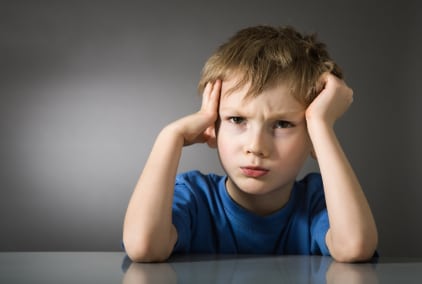Last month I blogged about giftedness and twice exceptionality and how to decide if you should have your child tested. This month, I’m blogging about the intensity of gifted and twice exceptional children. Emotional intensities are not exclusive to gifted children, although one of the hallmarks of giftedness is intensity. So many of you might have intense children, gifted or not, and wonder what to do with them.
Your child is intense if:
- He talks incessantly.
- He has higher emotional ups and downs than his peers seem to.
- He seems to have more energy and sleep less than his peers.
- He questions authority and has questions about the world for what seems like 24 hours a day.
- She has trouble letting go when things are disappointing to her.
- She has meltdowns over seemingly little things (even for a child).
- She needs to learn and be stimulated all day.
- She is bothered by the touch of clothing, noises, smells, and other stimuli.
Intense children can be so much. As is implied above, these are the kids who sleep less than their peers, have bigger emotions and bigger meltdowns, extremes of highs and lows, they ask more questions (and expect real answers), and seem to have more energy, too. This is why my phrase is too much – too much of everything.
 Childhood is an intense time already, but when you look at your friends’ and relatives’ kids and they seem to be less intense than your own, it can be a very lonely feeling. I remember watching in envy as the other moms in a playgroup could talk to each other while their children played, but mine ran a million miles an hour, wouldn’t stop asking questions and touching everything, and expected eye contact 100% of the time. Emotional and physical intensity can be a sign of creative giftedness, intellectual giftedness, a sign of a problem, or just a sign that the child is intense.
Childhood is an intense time already, but when you look at your friends’ and relatives’ kids and they seem to be less intense than your own, it can be a very lonely feeling. I remember watching in envy as the other moms in a playgroup could talk to each other while their children played, but mine ran a million miles an hour, wouldn’t stop asking questions and touching everything, and expected eye contact 100% of the time. Emotional and physical intensity can be a sign of creative giftedness, intellectual giftedness, a sign of a problem, or just a sign that the child is intense.
Some of these intensities, like high energy, lack of sleep, and asking questions, are just things that we tired parents live with. I used to joke that my oldest was like the child in the horror movie “The Ring” who doesn’t sleep. We have also had rules about how many questions they can ask during the day or during dinner, no kidding. It is wonderful that kids like this ask so many questions, but it is exhausting, too.
Other intense behaviors are harder to deal with, like meltdowns. Dr. Edward Amend, a leader in gifted research, has said that we need to understand gifted behaviors, not excuse them. I love that phrase because it helps us to know where to start. If we can understand what triggers these behaviors, especially when they interfere with relationships and family life, then we can help solve them. But, we don’t excuse bad behavior.
Try to figure out what your intense child’s triggers are. I noticed that my daughter needs food every couple of hours, which helps prevent arguments and meltdowns. Some intense children have a lot of fears and anxiety; try to figure out what is causing them. Try having a talk with your child before something that triggers anxiety, like a noisy party or a new experience; this will help alleviate some of these behaviors.
Know that you are not alone and that children with intensities can be exciting and fun, as well as frustrating. You will feel self conscious worrying that people are judging your parenting and wondering why you can’t manage your kid, but don’t worry about them. Keep looking for reasons behind the behaviors and using consistent behavioral management techniques. Many, many books have been written on this subject.
Click here for an article about emotional intensity in gifted children.
Here are a couple of good books:
Living with Intensity by Susan Daniels, PhD
Emotional Intensity in Gifted Students: Helping Kids Cope with Explosive Feelings by Christine Fonseca

















Oh my goodness!! This describes my kid so much it is truly shocking. Makes me feel better that some of this isn’t just in my head.
Very thoughtfully written, thank you for sharing! We have a lot of “intensity” in our home and sometimes it drives me nuts! Lol, glad to know I’m not alone